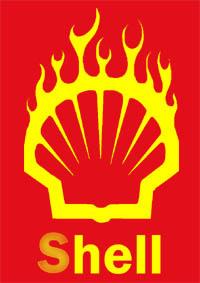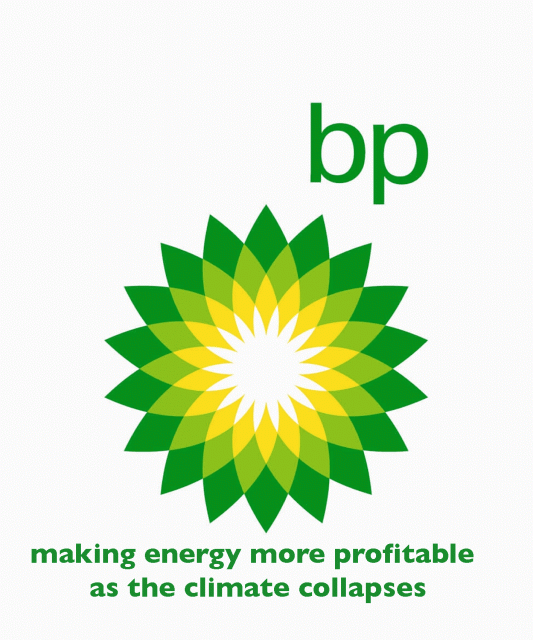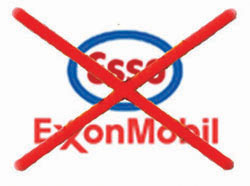 LAGOS, Nigeria (AP) — Militants said they blew up two more oil pipelines Monday in southern Nigeria and called for former President Jimmy Carter and actor George Clooney to help mediate an end to the crisis. [27th April 2008 updated at bottom]
LAGOS, Nigeria (AP) — Militants said they blew up two more oil pipelines Monday in southern Nigeria and called for former President Jimmy Carter and actor George Clooney to help mediate an end to the crisis. [27th April 2008 updated at bottom]
Military policemen patrol the creeks of the Omadino community in Warri South district of the Niger Delta.
The Movement for the Emancipation of the Niger Delta, or MEND, said in a statement that fighters hit two pipelines it believes are operated by Chevron Corp. and a Royal Dutch Shell PLC joint venture in southern Rivers state.
Shell officials had no immediate information on any attack, and the Nigerian military battle group that patrols the oil region’s waterways said it had no reports of overnight violence. Officials from Chevron could not immediately be reached for comment.
The militants last week claimed a separate attack on a pipeline operated by a Shell joint venture that the company said shut down a small amount of oil production. Video Watch how Nigeria attacks help hike gas prices »
The militants say they are stepping up their activities after the arrest of one of their leaders, Henry Okah, who is on trial for terrorism and treason.
The militants also called for mediation by Carter with the aim of ending the long-running crisis that government-led peace parleys have so far failed to control. The militants have also asked President Bush and Clooney for their involvement, but said they have received no reply.
“MEND expressed its willingness to embrace a genuine and transparent peace program without getting any response. The ripple effect of this attack will touch your economy and people one way or the other and hope we now have your attention,” it said.
The militant group emerged in early 2006, launching bombing attacks on Nigeria’s oil infrastructure that cut about one quarter of the usual oil output in Africa’s biggest crude producer. That has helped send oil prices to all-time highs.
The militants want the release of their leaders from prison, and for more oil industry revenue for their areas, which remain deeply poor despite the natural bounty.
But crime and militancy are closely interwoven in the southern Niger Delta where the crude is pumped. Many of the various armed groups in the region have had links to local politicians, who helped arm and direct the gunmen in their efforts to rig elections.
Both militants and government officials are suspected of heavy involvement in the theft and resale of crude oil, which oil industry officials brings revenues that run into the millions of dollars per day.
advertisement
Nigeria’s vast network of oil pipelines crisscross the swamps and creeks in the Niger Delta and are easily sabotaged. But the militants haven’t recently shown the sophisticated, military-style raids on staffed oil infrastructure that made them the most potent-ever militant group in southern Nigeria.
The militants’ activities appear to have moved further into the propaganda realm, with demands on international figures linked to external news events. Carter was in the Middle East on Monday.
– from mainstream media source (also below).
—–
Oil prices headed toward $117 a barrel as oil giant BP prepared to shut down a key North Sea pipeline and a strike at Exxon in Nigeria disrupted production.

BP’s Forties pipeline, which provides a third of the UK’s daily oil output, will close if a two-day strike by refinery workers goes ahead.
Rebels in Nigeria also claimed another attack on a Royal Dutch Shell pipeline.
The Movement for the Emancipation of the Niger Delta has repeatedly tried to sabotage Shell’s production in recent weeks.

A strike by workers at Exxon Mobil, Nigeria’s biggest foreign oil producer, has further disrupted production in the African country. It said it had been forced to halt its output of crude oil, estimated at 200,000 barrels per day.
In the UK, workers at the Grangemouth plant are due to take part in a two-day strike from Sunday in a row over pensions.
The BP-run pipeline from the Forties oil fields in the North Sea, relies on steam and electricity from the Ineos refinery at Grangemouth in central Scotland.
A BP spokesman said that closing Grangemouth would cause up to 70 platforms in the North Sea to either shut down or reduce production of oil.
BP said the pipeline would close when the provision of steam and electricity from Grangemouth runs out.
The company added that it would keep the pipeline open as long as possible, but anticipated shutting it late on Saturday, if strike action goes ahead.
======
Fri Apr, 25 2008
Nigerian main rebel group, The Movement for the Emancipation of the Niger Delta (MEND), today said it blew up another oil pipeline belonging to Shell in it renewed attack against oil infrastructures in the region.
MEND said the late Thursday night attack occurred at Kula River in Rivers state of Nigeria.
MEND says it is fighting to force the federal government to direct more oil industry revenues to the region, which remains deeply poor despite four decades of oil production in the area.
The militant group said military officials who were supposed to protect the pipelines actually assisted the fighters when they ran into them during the attack.
“After the blast, the fighters ran into a docked joint military patrol boat but were astonished that instead of a confrontation, the soldiers in the patrol boat urged them on and lamented about having to defend what is unjust.
“MEND uses this opportunity to thank its numerous sympathizers inside the military, oil industry and oil producing communities for facilitating the success of the on-going Operation Cyclone (the
crippling of the entire Nigerian oil export industry).
“This attack is dedicated to the Rivers state governor, Mr. Rotimi Amaechi who boasted to the Financial Times that our past successes were attributed to the absence of patrol boats undergoing servicing. We waited for the patrol boats to return back in service before carrying
out this attack to proof a point.
“Our candid advice to the oil majors is that they should not waste their time repairing any lines as we will continue to sabotage them. We have time on our side and there is so much to be destroyed. The only time we will stop is when we receive a direct order from our Shepherd.” The
group said in an email sent by Jomo Gbomo to The Times of Nigeria.
Shell confirmed three attacks over the past week, and announced it may not be able to meet its obligations to ship some 169,000 barrels per day from Nigeria over the next few weeks. The company, one of the main operators in the country, has yet to report any production outages from
the other attacks.
Those attacks have helped send crude prices to historic highs on international markets.
The militants have stepped up activities as one of the group’s reputed leaders, Henry Okah, faces trial on terrorism and treason charges. The group emerged two years ago and quickly established itself as the region’s most effective militant organization.
Since Okah’s arrest, the group has not launched any of the coordinated, military-style armed raids on staffed facilities that originally made it notable.
